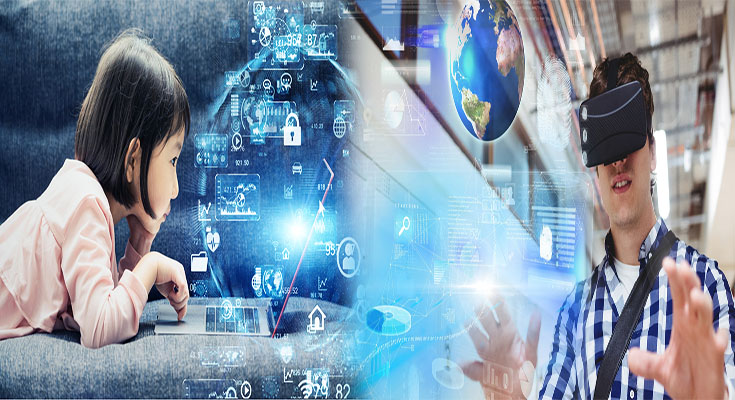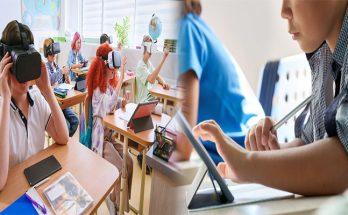The education industry is at a crossroads, with new technologies and advancements reshaping the way we learn and teach. From virtual reality and artificial intelligence to blockchain-based certifications and personalized learning, the future of education promises to be more inclusive, accessible, and engaging. In this article, we’ll explore some of the emerging technologies and future trends shaping the education industry.
1. Virtual and Augmented Reality
Virtual and augmented reality (VR/AR) technologies are transforming the way students learn by providing immersive, interactive, and engaging experiences. VR/AR can create simulations of real-life situations that allow students to gain hands-on experience and enhance their critical thinking skills. These technologies offer a new dimension to learning, providing opportunities to visualize complex concepts, explore diverse environments, and engage with interactive content. Additionally, VR/AR can be used to improve teacher training, allowing educators to practice their skills in a virtual environment.
2. Artificial Intelligence and Machine Learning
Artificial intelligence (AI) and machine learning (ML) can help automate and personalize the learning experience, making it more efficient, intuitive, and effective. AI/ML can analyze large amounts of data and provide meaningful insights to educators, helping them tailor their teaching methods to the individual needs of each student. These technologies can also automate administrative tasks, such as grading and lesson planning, which reduces the workload on teachers and gives them more time to focus on student needs.
3. Personalized Learning
Personalized learning is gaining traction as a way to address the diverse needs of students in the classroom. This approach tailors learning to each student’s individual needs, interests, and abilities, allowing for a more immersive and effective learning experience. Advances in AI/ML and big data analytics make personalized learning more accessible, as educators can analyze data and gain insights to adapt their teaching methods to individual students.
4. Blockchain-Based Certifications
Blockchain-based certifications are emerging as a way to transform the traditional certification process. These certifications use a decentralized ledger to store and verify credentials, allowing for seamless verification and transferability of certificates across academic institutions and employers. This technology offers a secure and transparent way to validate skills and knowledge, making it easier for students to demonstrate their abilities and for employers to find skilled workers.
5. Gamification and Game-Based Learning
Gamification and game-based learning leverage game design principles to make learning more engaging, interactive, and fun. These technologies use elements such as rewards, challenges, and social interaction to motivate students and enhance their learning experiences. Game-based learning provides an immersive and interactive way to learn, offering opportunities for practice, feedback, and skill development.
6. Cloud Computing and Collaboration Tools
Cloud computing and collaboration tools allow for real-time collaboration, sharing, and access to educational resources from anywhere, at any time. These technologies enable students to access learning materials on-demand and collaborate with others across the globe. Cloud computing also provides a secure and cost-effective way to store, manage, and share data, which is essential for educational institutions and organizations.
As emerging technologies continue to reshape the education industry, it’s essential to stay informed and prepared for the changes ahead. By leveraging technologies such as VR/AR, AI/ML, personalized learning, blockchain-based certifications, gamification, and cloud computing, we can create a more inclusive and engaging learning environment that prepares students for the challenges of the future. As educators, we must embrace these new technologies and trends to ensure that we’re providing the most effective and relevant education for our students.





